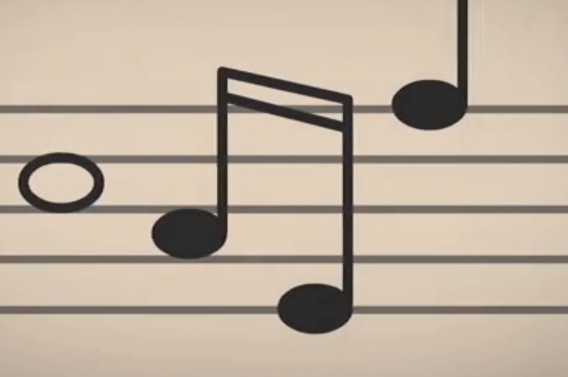(单词翻译:单击)
听力文本
When we listen to a song we know, we're constantly hearing forward in time, anticipating the next note.
当我们听着一首熟悉的歌,我们经常听到比当下正播放的要更后面,预料着下一个音符。
It's hard for us to think about one particular musical moment in isolation.
单单想着一个特定的音乐桥段对我们来说是困难的。
If we want to think about the pitch of the word "you" in "Happy Birthday,"
假使我们要去想 "you" 这个字在生日快乐歌里的音调,
we have to start back at "Happy," and sing through until we get to "you."
我们必须回到"Happy"来开始一直唱下去,直到我们唱到"you"。
In this way, a tune is sort of like a habit.
这样来说曲调就有一点像是一个习惯。

Just like once you start tying your shoe,
就好像是打从你开始绑鞋带
you're on automatic until you tighten the bow, once a tune is suggested because,
直到你绑好蝴蝶节前是不假思索的,一但想到某个调子,
for example, someone says, "my umbrella,"
例如因为某人说了“My unbrella”
we have to play through until it reaches a natural stopping point, "ella, ella, ella."
我们就得在脑中播放歌曲,直到唱到了原本的停顿处。
But this is largely speculation.
不过这充其量也只是一个猜测。
The basic fact remains we don't know exactly why we're susceptible to earworms.
事实上我们仍未确切地明白为什么我们会这么容易受到耳朵虫的影响。
But understanding them better could give us important clues to the workings of the human brain.
但是更清楚认识它们可以给我们有关人类大脑运作的重要线索。
Maybe the next time we're plagued by a Taylor Swift tune that just won't go away,
也许下回我们受扰于盘踞于脑内久久不去的泰勒歌曲,
we'll use it as the starting point for a scientific odyssey that will unlock important mysteries about basic cognition.
我们会利用它来当一段科学旅程的开端,那将会解开基本认知的重大迷团。
And if not, well, we can just shake it off.
假若不行,我们就忘了它吧。
演讲介绍
你是否曾经在杂货店里排队等候,毫无念头的浏览着杂志书架时,有一首歌在你的脑海里响起?


